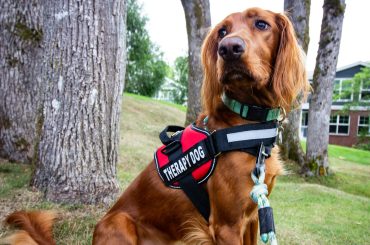I began my recovery journey on March 23, 2018. At the time, I was 21 years old. I had absolutely no idea what lay ahead of me—I was terrified. After a particularly grisly suicide attempt, I checked myself into an inpatient treatment facility in the UK.
I imagined that rehab would be like a spa.
I pictured myself lounging around in a white bathrobe and drinking a green juice, thinking that once I left, I would be able to drink and use “like a lady.” Growing up in London, drugs and alcohol had always been easily accessible. Perhaps spending some time in the countryside and getting away from the chaos of the city for a while would make all of my problems go away.
If I had known then that I would spend a year in a number of facilities around the world, unearthing trauma, learning how to relinquish the destructive behaviours I had created for survival, and accepting life on life’s terms, I am not sure I would have made that initial decision to go to rehab. I am now incredibly grateful that I did.
Learning that I was an addict/alcoholic was a rude awakening.
Discovering that abstinence was the only way to manage this disease was also a major revelation. I saw the differences between myself and the other attendees. My head told me that I was “too young” to be there, that my using was different, and that my drug(s) of choice (or no choice, depending on how you look at it) weren’t so highly disapproved of by society. I told myself that all of this meant that was I was doing, was ok.
Walking into 12 step meetings, I was skeptical, terrified and swimming in self-obsession. I introduced myself as someone who “liked to party” as opposed to an addict or alcoholic. But I kept going to those meetings, and slowly began to see the similarities. I stopped trying to find reasons and excuses to relapse. Now I can comfortably introduce myself correctly as an addict/alcoholic, and truly accept that statement as the truth.
I imagined I would enter into recovery gracefully, relinquishing my drug and alcohol addiction and glide into a new life of sobriety. I was also wrong about this. Without the faux safety blanket of substances, I found myself completely unable to handle life. I bounced from one rehab to the next as co-occuring addictions reared their ugly heads.
It felt like one thing after another—compulsive self-harming, suicidal ideations, complex trauma and an eating disorder.
And then came the anxiety and panic attacks, one by one. They all showed up in my first year of sobriety. Throughout that year, many times my head told me that I should just give up—that sobriety wasn’t worth it, if all of this other chaos came out. But I am so grateful that I was able to receive the support and encouragement to keep going and am now in a position to be able to help others who’ve faced similar struggles.
One of the most crucial lessons I learned during my extensive stay in mental health facilities is this:
When I talk about what is going on in my head, as insane as it may be, there is always going to be someone who can relate, whether to the specific event, the feelings encompassing it, or the thought pattern that surround it. My head likes to tell me that I am alone—that no one could possibly understand. Time and time again, that has been disproven.
I am acutely aware that my circumstances are not the norm. For many people, checking into a residential treatment facility is not an option. Finances, time, or responsibilities that cannot simply be put on hold for a while prevent many people from entering residential treatment. Most people cannot take a month—let alone a year—out of their lives to pursue treatment. I recognise the privileged position I was in, to be able to do that.
I celebrated a year of sobriety whilst still in treatment.
That seemed embarrassing at the time, but now I’m incredibly grateful for it. My first year of recovery involved dozens of therapists, multiple in-patient treatment facilities, one visit to the ER, three sponsors and hundreds of 12-step meetings.
Now, I live in Thailand and work for a company, Clarity, that provides accessible and affordable mental health and addiction treatment, both online and in-patient, to clients all over the world. I was inspired by those who helped me in my recovery journey to begin working towards becoming a qualified counsellor as I learnt first-hand that “the therapeutic value of one addict helping another is without parallel.”
I never imagined I would be living the life I am today.
I’m lucky enough to be of service and help those who are struggling with their addiction and mental health challenges. Through my role as the Social Media Manager for Clarity Thailand and Clarity at Home, I also get to spend my time working towards ending the stigma surrounding addiction and mental health, which is something I am ridiculously passionate about and hold very close to my heart. Look us up on Facebook and Instagram if you’d like to see the work we are doing.
Instagram
@claritythailand
@clarity.at.home
Facebook
Clarity Thailand
Clarity at Home
Visit our website to learn more about the online mental health and addiction support offered by Clarity at Home.






